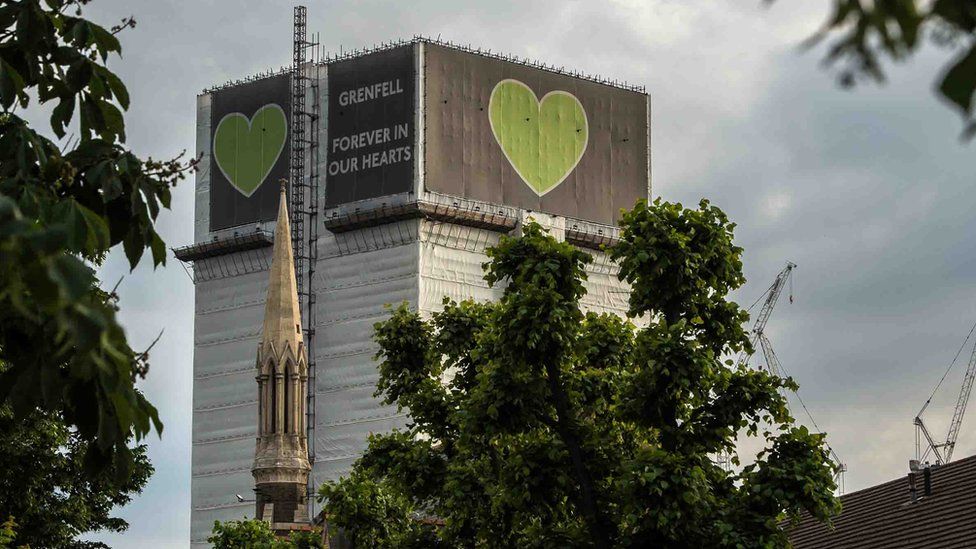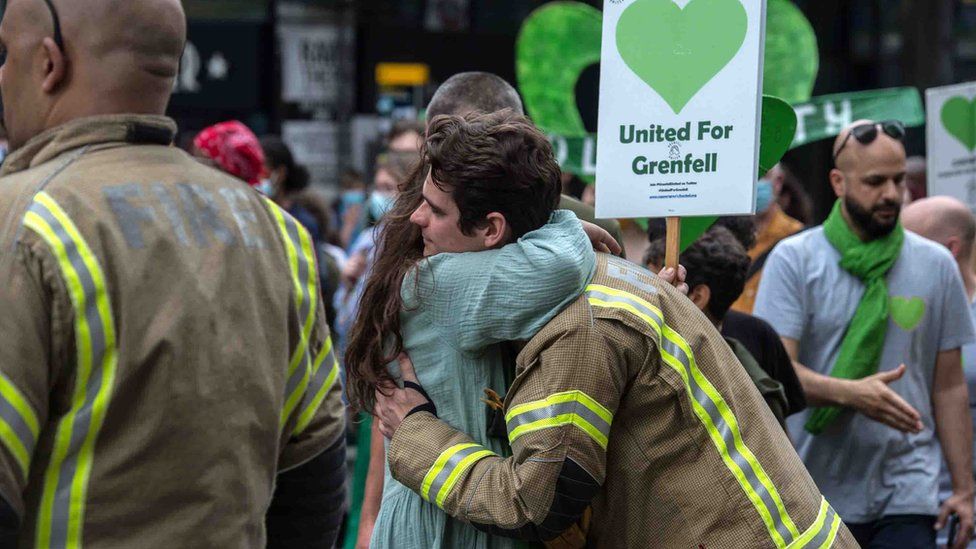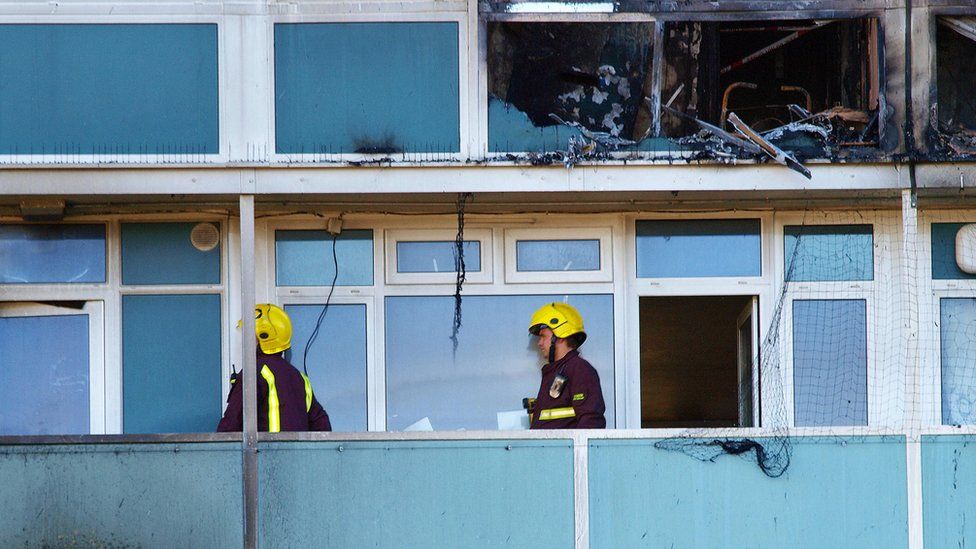A lawyer for victims of the 2017 fire says the “concealment” of safety risks is a “major scandal”.

Image source, Getty Images
Successive governments concealed the extent of fire safety risks to buildings, the Grenfell Tower fire inquiry has heard.
Stephanie Barwise QC, a lawyer representing victims of the 2017 disaster, said it was one of the “major scandals of our time”.
She added the fire was linked to a push to deregulate the building industry.
It comes as the latest stage of the inquiry takes evidence on what public bodies knew about fire risks.
Over the next five months, the inquiry will examine government decisions going at least as far back as New Labour from 1997 onwards.
It will also look into actions taken during the Conservative-Liberal Democrat coalition, which came to power in 2010.
The government and other public bodies will make opening statements later on Monday.
When it was last in government, Labour excluded some “common parts” of buildings from changes it made to inspection rules for tall buildings.
These included external walls later blamed for spreading flames at Grenfell.
In 1999, a fire at Garnock Court in Irvine, Scotland resulted in a parliamentary select committee raising concerns about the standards used to assess building materials.
The highest British standard, known as Class 0, includes materials which burn freely.
But despite that, the official guidance for meeting building regulations allowed them to be installed on tall buildings.
The inquiry is expected to hear evidence that government officials knew about the issues with the Class 0 standard, but did not change the requirements.

Image source, Getty Images
Following the Garnock Court fire, the Labour government asked for a review of technical documents for engineers designing tall buildings.
The review included new fire tests of cladding systems, carried out around 2002, in which large scale mock-ups were set alight.
The results of the tests were kept confidential, but most of the systems failed.
However the results, leaked to the BBC in September, suggest building industry and government officials had evidence of the fire risks of combustible cladding at least 13 years before the Grenfell disaster – but didn’t make it public.
A fire at Lakanal House in south London in 2009 resulted in a coroner, Frances Kirkham, warning the government that all parts of a building should be examined in fire safety inspections.
The coroner also recommended rewriting the guidance that construction firms and architects rely on to ensure they meet the requirements of the building regulations.
Finally, Ms Kirkham said the government should consider fitting sprinklers to all high-rise public sector buildings.
The Conservative-Liberal Democrat coalition took power in 2010, but by the time of the Grenfell Tower fire seven years later, the introduction of sprinklers had been shelved due to the prohibitive cost.

Image source, Getty Images/AFP
There were no changes to fire inspections, and a review of the building regulation guidance had not been completed.
Class 0 remained an acceptable standard for buildings taller than 18m until a ban on combustible cladding was introduced after the Grenfell disaster.
During the previous two decades, the refurbishment of aging tower blocks by adding cladding to make buildings drier and warmer had become standard practice, as councils attempted to meet environmental requirements.
At the same time, the coalition government wanted to help the housing industry build more new homes by reducing the “burden of red tape”.
Under a “One in, One out” policy, every new regulation introduced had to be balanced by one or more of equal impact being removed.
In her opening statement, victims’ barrister Ms Barwise said Grenfell was a “predictable, yet unintended consequence of a combination of the laudable desire to reduce carbon emissions coupled with an unbridled passion for deregulation.”
She alleged that the coalition government allowed itself to become a “junior partner” to the building industry, ignoring “exploitation” of the building regulations for profit.
“Government’s response on realising the extent of the problem was to react by concealment instead of candour,” she said.
“The result is a prolonged period of concealment by government, which should properly be regarded as one of the major scandals of our time,” she told the inquiry.
During the next months, a series of former government ministers and senior officials are due to give evidence to the inquiry.
Senior counsel to the inquiry, Richard Millett QC, urged public bodies giving evidence to “fully embrace their obligations of candour and openness”.